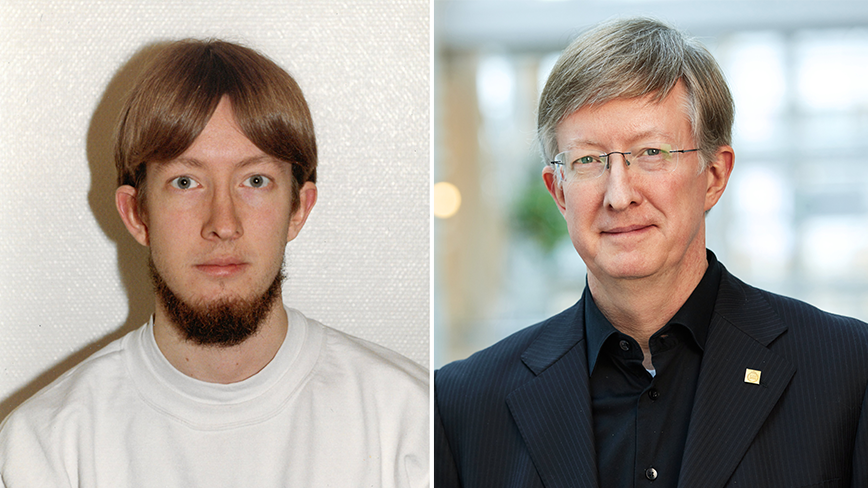"I'm not done!"
Carl-Mikael ”Bellman” Zetterling on 30 years at KTH

Carl-Mikael ”Bellman” Zetterling, this year you have been at KTH for 30 years, how did you end up at KTH?
"Yes, actually, I have been here since 1987. So it's more than 30 years since I started on the Electrical Engineering program as E-87. At that time, it was four and a half years, so I finished by the autumn of 1991. But I thought it was so much fun to study, so I probably read about one extra year of courses in those years. But I still did not consider myself finished, so I continued with doctoral studies and got an excellence position in January 1992. After I graduated in 1997, I first got a researcher position, then I became an Associate Professor, and in 2005 I was promoted to professor."
What has been the most fun since you started at KTH 30 – 35 years ago?
"The reason I'm still here is that I like it so well here. I enjoy teaching students and research and having doctoral students explore the ideas I have. Of course, part of the administration I could do without, and a lot of the meetings too!"
If you travelled back in time and told your doctoral student self about what you're researching today, what would have been most surprising?
"In my field, I would probably be surprised that we have not come so much further. While in other areas I would probably be surprised at how far we have come if you think about smartphones, Ipads and the internet. But it is always the case that you think you would have to do much more within your area. I've been researching silicon carbide since 1992. And I thought that the development would be much faster. Even though today it has become commercial, one can buy components, and they are used in cars like Tesla. But as a doctoral student, I had probably thought that it would have happened ten years earlier."
Would you be surprised that you were still at KTH?
"No, I do not think so. I guess I did not plan this career. When I started at KTH, I thought I would become an electronics designer and work at Ericsson. But after I did my thesis project there, I did not find it so exciting and chose instead to continue with research. One thing I might have surprised myself with when I think back is that I still today think electronics is so much fun, but at the same time, I feel that there is still a lot left to learn. I'm not done! I still have the same burning interest and the same feeling that there is so much more to learn after thirty years."
What has been the most significant change at KTH since you started?
"There have been so many reorganisations. I can barely remember what the organisation looked like when I started. But the biggest change, I would have to say, is when KTH became an international university. It was the beginning of the 2000s when we started the international master's programs, including System-on-Chip Design, the first in my division; today, it is called Embedded Systems. I don't think we understood then how many international students would come to KTH. Nor how international it would be today. I think that is a huge and important change."
Where do you think your field of research is headed? What do you hope the future brings?
"This is something we always struggle with; what is the next thing to research? It is always difficult to make predictions. I see some fields that I do not believe in though; quantum computers. I do not think that will work. It is not possible to magically get calculations from nowhere and zero energy. I think silicon will continue to dominate the computers in the near and far future."
You were also elevated to Fellow in IEEE at the turn of the year; what does that mean?
"IEEE is a worldwide engineer's association in Electrical and Electronics Engineering. I have been a member there since 1991 - pretty much as long as I worked at KTH. After the first membership level, you can become a Senior Member after ten years. But you can't become a Fellow through long and faithful service; you have to convince the Fellow Committee that you have contributed to the field of electrical engineering in some way, either through your research, your teaching, or something else. I received the nomination for 'Contributions to Silicon Carbide Devices', which I have been researching for 30 years. I think it's very honourable that I got this elevation!"
